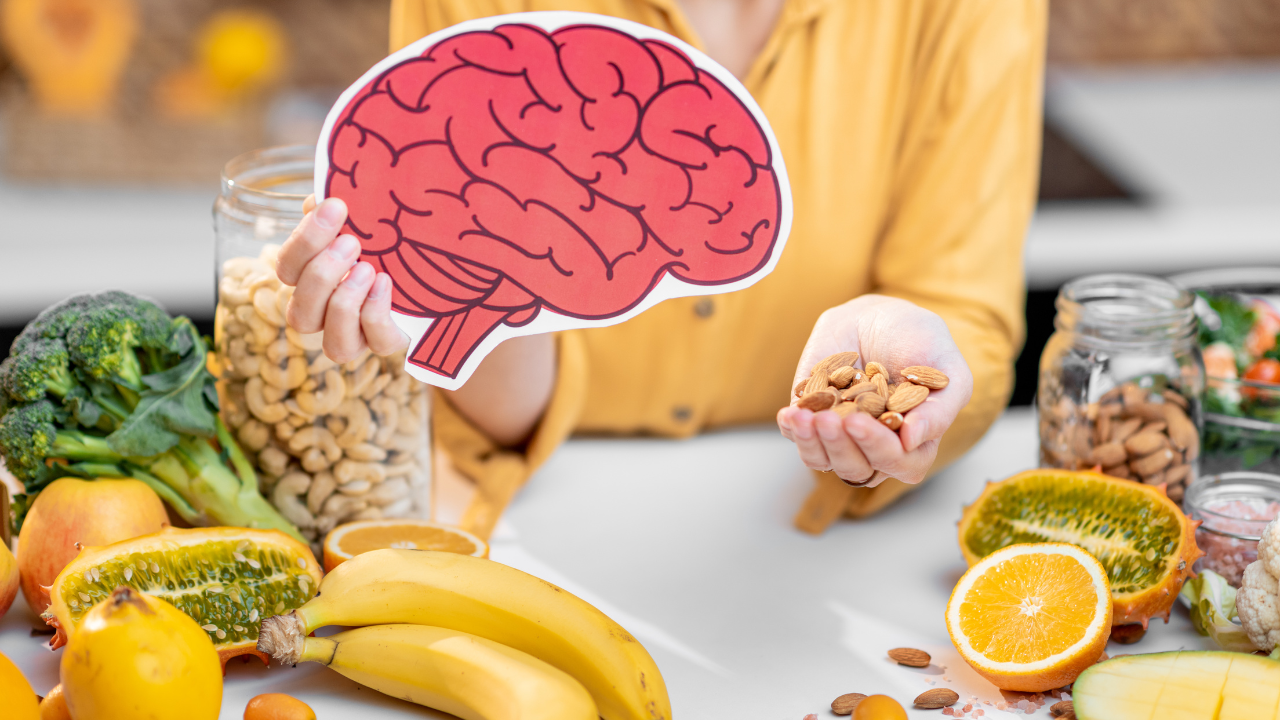-
news
-
Health
You are what you eat: Experts explain how food impacts your mental health
In a world full of emotional demands, our diet can be a simple but powerful tool for enhancing mental health. So the next time you sit down to a meal, ask yourself: Is this food nourishing your body or your mood?

Image – Canva
In our busy lives, it’s easy to overlook the connection between what we eat and how we feel. As we turn to comfort food after a long day, few of us realize that our food choices are directly impacting our mental health. Experts now suggest that nutrition plays a key role in emotional well-being, shaping everything from our mood to our cognitive functioning.
Better gut health promotes emotional stability
Nishtha Jain, counseling psychologist at LISSUN Mental Health Platform, explains the powerful impact of food on both the body and mind. “The saying, ‘You are what you eat,’ is truer than we can imagine,” says Jain. The brain, which controls our emotions, depends on nutrients to function optimally. According to Jain, a healthy diet rich in fruits, vegetables, lean proteins and whole grains promotes emotional stability by enhancing gut health. The gut, often called the “second brain”, produces about 90% of the body’s serotoninA neurotransmitter that regulates mood, sleep, and appetite.
Processed foods make us sluggish
Jain says that processed foods, though initially energizing, quickly cause a crash that leaves us feeling lethargic and irritable. “High sugar intake can cause inflammation throughout the body, including the brain, which can lead to mood disturbances,” she warns. Over time, a diet rich in processed foods can create a cycle of emotional ups and downs, which affects mental health. On the other hand, omega-3 fatty acids, antioxidants and vitamin D Support brain structure and reduce inflammation, significantly improving mood and reducing symptoms of depression and anxiety.
Nutrition controls your mood
Dr. Rahul Chandhok, chief psychiatrist and consultant in mental health and behavioral sciences at Artemis Hospital, emphasizes the importance of nutrition as a mood regulator. “The brain receives about 20% of our daily calorie intake,” he says. This is not just for energy, but also for micronutrients that regulate neurotransmitters like serotonin. Foods rich in omega-3 fatty acids, such as salmon and flaxseed, have been directly linked to reducing depression, while complex carbohydrates from whole grains Provide stable glucose release, and balance mood.
Dr. Chandhok also points to the important connection between gut health and mental well-being. “The gut microbiome plays an important role in emotional well-being,” he explains. “Trillions of bacteria in the gut communicate with the brain, influencing mood and cognitive functions. fermented foods like yogurt And sauerkraut is rich in probiotics that support a healthy gut, indirectly promoting emotional stability.
Nutritional deficiencies cause depression
Both experts agree that nutritional deficiencies are a hidden factor in mental health disorders. For example, low levels of vitamin D are linked to seasonal affective disorder, while magnesium and zinc deficiencies can lead to anxiety and depression. Dr. Chandhok recommends including green leafy vegetables, nuts, and seeds in your diet to help combat these deficiencies.
Create a conscious relationship with food
Ultimately, both Jain and Dr. Chandhok emphasize that building a conscious relationship with food is key to emotional well-being. As Jain says, “When we eat slowly, savoring each bite, we connect with our bodies. This connection promotes emotional awareness and can help us make better food choices.” Dr. Chandhok agrees and reminds us that every meal is an opportunity to elevate or degrade our mental state. “By nourishing your body,” he says, “you’re taking care of your mind, too.”
Get the latest news live on Times Now with breaking news and top headlines from around the world.


